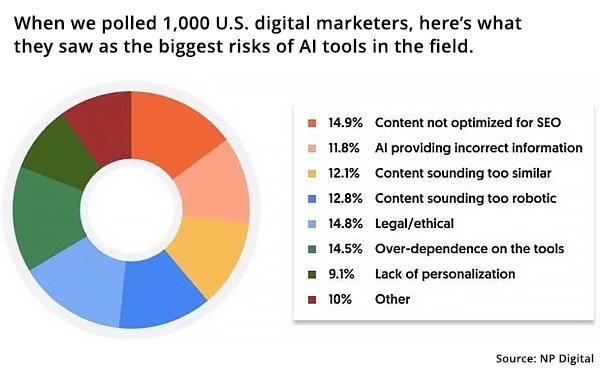By Jon Swartz
Google appears to be in a good position to compete for digital advertising against OpenAI
OpenAI’s ChatGPT loomed over Alphabet Inc.’s Google earlier this year, threatening the search giant’s core business of advertising.
But the menace, which seemed so dire in April, hasn’t materialized. Analysts increasingly believe Google GOOGL, +0.55% GOOG, +0.59% is well-positioned to compete for digital advertising against the initial outsize influence of startup OpenAI and its major investor, Microsoft Corp. MSFT, +0.18%, this year.
“As Google incorporates more [artificial-intelligence and machine-learning] tools … we have not seen any evidence of share shifts to [Microsoft’s] Bing, and in fact see ad budgets shifting back to [Google] Search as indications are that ad spend tailed off after the initial bump at Bing,” Deutsche Bank analyst Benjamin Black said in a note this month.
Black maintains a buy rating on Google shares, with a price target of $125.
Google’s brightened advertising outlook extends to rivals Meta Platforms Inc. META, -0.79%, Pinterest Inc. PINS, -2.00% and Yelp Inc. YELP, +3.02% as ad agencies loosen spending after a cautious start to 2023 because of economic uncertainties, Black said.
Analysts also anticipate Google search resilience despite the Bing threat, and they expect faster YouTube growth following several down quarters, with hopes high around the launch of NFL Sunday Ticket on YouTube TV this year.
Here’s what to expect when Alphabet’s numbers hit after Tuesday’s closing bell.
What to expect
Earnings: Analysts tracked by FactSet expect Alphabet to report $1.34 a share in earnings, up from $1.21 a year before. On Estimize, which crowdsources projections from hedge funds, academics and others, the average projection calls for $1.34 a share in earnings.
Revenue: The FactSet consensus calls for $72.8 billion in total revenue, up from $69.9 billion the previous year. Those contributing to Estimize expect $72.8 billion in revenue. Excluding traffic-acquisition costs, analysts from both FactSet and Estimize forecast $60.25 billion in revenue.
Stock movement: Alphabet shares have gained 36% so far this year. The broader S&P 500 SPX, -0.28% is up 18% in 2023.
Of the 50 analysts tracked by FactSet who cover Alphabet shares, 38 have buy ratings and four have hold ratings, with an average share-price target of $135.94.
What to watch for
Investors are keeping a close eye on Google Cloud, which accounts for a sliver of the company’s overall revenue.
Why? As most enterprises hash out their generative-AI strategies, it’s unclear how much benefit Google Cloud may reap in the second quarter and going forward. A second-half tailwind could offset ongoing cost-optimization headwinds, Jefferies analyst Brent Thill said in a note last week.
Goldman Sachs analyst Eric Sheridan maintained a buy rating on Alphabet shares with a price target of $140. “Broader industry conversations have continued to increase our conviction that [Alphabet] will be a long-term AI winner,” he said in a note last week.
“We think [Alphabet’s] potential for margin outperformance (especially into 2024), YouTube revenue reacceleration [and] sustained cloud computing growth (with improved margins) remain underappreciated,” Sheridan said.
Feature Image Credit: Getty Images
By Jon Swartz
Jon Swartz is a senior reporter for MarketWatch in San Francisco, covering many of the biggest players in tech, including Netflix, Facebook and Google. Jon has covered technology for more than 20 years, and previously worked for Barron’s and USA Today. Follow him on Twitter @jswartz.


